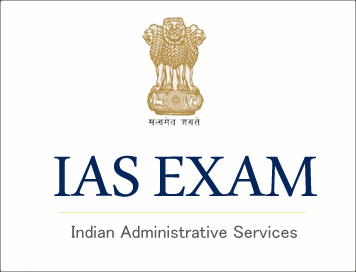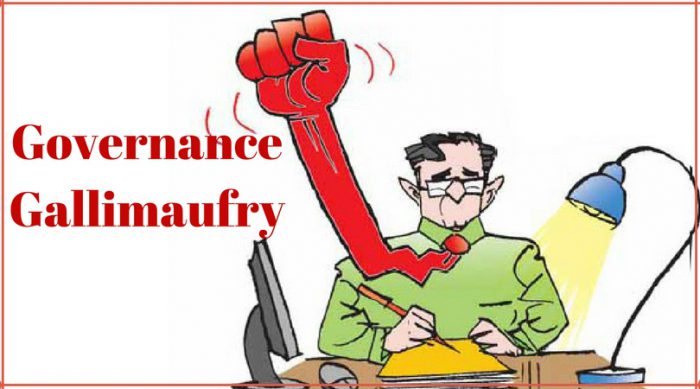The state administrative service is rife with arbitrariness and discrimination. Hemashri recounts how her study leave prayer for a higher study to JNU, New Delhi, was not granted, while two other batch mates of hers were allowed relaxation of rules. It will soon be 20 years, the administrative process is yet to dispose of her prayer. Read more in the weekly column, exclusively for Different Truths.
It was the erstwhile foreign rulers that set up the foundation of our administration when the East India Company became ambitious beyond mere trading. Those rulers eventually left but their systems continued whether it is our education or administration. The First Administrative Reforms Commission of India was set up on 5th January 1966 under the Chairmanship of Morarji Desai. However, the second such Commission was set up only on 31st August 2005, after a gap of 39 years. Why it took almost four decades to follow up the initiative, only the experts would be able to comment.
As an experimental bureaucrat, I have been a keen observer of the delivery mechanism of the institution called Government which is a vast set up. Pundits have extreme views about the area of operation of a government. “That government is the best which governs the least,” was the motto with which Henry David Thoreau had opened his pamphlet ‘Civil Disobedience’. Countries like India afflicted with mass poverty, illiteracy that would be a utopian concept and a far cry from reality. The government here is a welfare-oriented institution working responsively for the masses with the avowed goal of equality.
Within a year in the Civil Service, I grew restlessly disillusioned. Series of incidences and a loud scolding from a brown sahib made me rebellious to seek an escape route. In sheer desperation, I started taking the Employment News and found this notice inviting application for a national entrance for an M. Phil/Ph. D. programme in Jawaharlal Nehru University (JNU), New Delhi. I took permission from authority to appear and cleared the written entrance and then had a hot debate with parents. Finally, I boarded the Rajdhani Express to appear for an interview on leave. When the results came out, it was a surprise to see my name in the serial number one in the selected list for August 1998 batch of M Phil/ PhD batch in Centre for Social & Regional Development in School of Social Sciences, JNU.
Employment News and found this notice inviting application for a national entrance for an M. Phil/Ph. D. programme in Jawaharlal Nehru University (JNU), New Delhi. I took permission from authority to appear and cleared the written entrance and then had a hot debate with parents. Finally, I boarded the Rajdhani Express to appear for an interview on leave. When the results came out, it was a surprise to see my name in the serial number one in the selected list for August 1998 batch of M Phil/ PhD batch in Centre for Social & Regional Development in School of Social Sciences, JNU.
I drafted study leave prayer as a novice and called on the Head of the Department who appeared sympathetic and assured all help. Since 14th August 1998 was the last date of admission so during the pendency of the prayer I proceeded to join. Arranged tickets for all family members. Our brother was posted in Gujarat, who was supposed to join us in Delhi.
The Rajdhani Express we boarded got stuck up near Alipur Duwar for nearly 8 hours delaying our arrival. I was restless so called up another selected candidate whom I had met only during the JNU interview – Bashistha Banerjee at Patna. I narrated her the status and requested her to get a flight ticket for me from Patna. She assured to get it for me. Due to utter disappointment, I was walking in the nearby compartment. I saw the local MP Smti Bijoya Chakrabarty and approached her for help. I requested her to write a letter to JNU authority to consider my case as she is also travelling on the same train. She was very kind to me and gave a letter.
As we reached the Patna Railway Station it was already 12.10 pm and the Sahara flight was scheduled at 12.20 PM. I was anxious. I bade goodbye to my parents and with full confidence on my new friend got down from the train. Bashistha with her uncle was waiting for me. She told me aunty had prepared a sumptuous lunch for me but there is now no time to go to Rajendra Nagar apartment. So we dashed off to Airport. A handsome Sahara Airlines manager welcomed me and stated that the flight has been kept holding for fifteen minutes on the pretext of a technical snag. It was unbelievable! With a warm hug to my angelic friend, I boarded the flight for my epic first flight journey. From the airport, I headed straight to JNU Campus and took admission. I had already contacted office bearers of JNU Students Union informing my predicament and they helped me a lot. After admission, I went to Hotel Assam Mayur, in Paharganj, and booked a room for parents. On the eve of 15th August, security was tight. I produced my Identity card and admission documents. At midnight, our family members arrived.
A new chapter of my life started in the Ganga Hostel room number 150 where my soul sister Bashistha joined after a few days. Walking on the street covered by greenery on both sides, I felt like a bird out of a cage and everything seemed perfect. A lavish lunch in department canteen would cost only Rs 15 and Archie’s Birthday card with the printed price of Rs 10 would cost only Rs. 8. Very often there would be a post-dinner talk by distinguished guests whom I only saw in TV or newspaper.
The first blow came after three months when my father informed that my study leave prayer has been rejected without any reason. I immediately sent another prayer for extraordinary leave without pay. My parents panicked and my mother became inconsolably tearful. The whole day I would be busy roaming around, attending classes but only at the night the gloomy picture used to unfold with an unpredictable outcome. One day, I decided to discuss the matter with my course director as by that time first semester  examinations were due. He told me to apply for a zero semester and go back home to settle the matter and then come back with a clear mind. He also added, “If you are not allowed permission then do not resign job. You can come for your Ph.D. anytime.”
examinations were due. He told me to apply for a zero semester and go back home to settle the matter and then come back with a clear mind. He also added, “If you are not allowed permission then do not resign job. You can come for your Ph.D. anytime.”
After the examination, I returned home during the break and visited the office. I was told that my second leave prayer has already been rejected. A prestigious fellowship and a seat in a renowned university were not considered justifiable ground to allow my study leave. After a few days, one of my well-wishers informed that a batchmate of mine has been allowed to proceed on quasi-lien in a suppression of existing Government Rules and Office Memorandum to proceed to work in a private sector organisation. He advised I may approach the court with this order. This batchmate was from a politically influential family. Another well-wisher informed that another officer from such an influential family had proceeded to a Foreign Embassy without formal government permission but her case has been considered to be regularised. I was confused and was utterly directionless. I decided to be guided by my parents and the course director and applied for a zero semester.
I received a notice to vacate my hostel seat. When I brought back my luggage, I felt that as if I left behind in that campus a fragrant dream of mine – to hone up my wings to fly. The UPSC aspirant that I had met in JNU happened to be my Knight in Armour in real life – engagement and marriage followed.
I submitted several prayers for regularisation of my five months leave but no reply was received. In 2012, during an imposed sabbatical I was assigned a task by the Assam Civil Service Officers Association to study the stagnation of the service along with a few colleagues. After several sittings when there was no concrete outcome to start the project I felt very motivated to take the call and start a study. The situation I was enduring at that time and the resultant agony perhaps acted as the catalytic agent. Friends, well-wishers, and seniors helped and guided me. We placed a research paper as our document. Meanwhile, I received a show cause in July 2015 asking me as to why I had submitted a prayer for Ph. D. in 1998 and why a Departmental Proceeding should not be initiated against me, I was asked to submit reply within three days, I wrote that since the matter is seventeen years old hence I will have to search my old files and two more additional days be given. I submitted a six-page reply quoting the precedence of generous relaxation to two persons.
It was a dream come true that all suggestions of our study were accepted by the government and Assam Civil Service Amendment Rules 2015 was notified. The government had notified two new services to support the Premier Service and created 157 new posts at the higher level in ACS. Fruitful result of a  grand teamwork it was. It was a dream come true. After a week, I went to enquire the status of my prayer. The gentleman officer was very annoyed and told me, “I would not have stated those precedences if I were in your position because those were special cases.” I pulled up a chair to sit near him and told him, “Sir, I was under the impression as per provision of the constitution similarly situated people must be treated similarly. So I would like to know on what ground those were special cases.” He was very visibly irritated and told me, “I know your husband. He is a very amiable person unlike you.” I told him, “Thanks Sir, I will convey your compliment to him but I will come again.” I went again after about two weeks. He told me, “You may go and meet senior people.” I told him, “Sir, for me you are sufficiently senior.” I never went again. The prayer is still pending.
grand teamwork it was. It was a dream come true. After a week, I went to enquire the status of my prayer. The gentleman officer was very annoyed and told me, “I would not have stated those precedences if I were in your position because those were special cases.” I pulled up a chair to sit near him and told him, “Sir, I was under the impression as per provision of the constitution similarly situated people must be treated similarly. So I would like to know on what ground those were special cases.” He was very visibly irritated and told me, “I know your husband. He is a very amiable person unlike you.” I told him, “Thanks Sir, I will convey your compliment to him but I will come again.” I went again after about two weeks. He told me, “You may go and meet senior people.” I told him, “Sir, for me you are sufficiently senior.” I never went again. The prayer is still pending.
I believe in destiny and I have not really pursued for the disposal of the prayer. It is not my prayer anymore. It is a case study. Without any intervention when shall this process conclude is something that I am curious to see.
In August 2018, I would complete twenty years of initiation of this prayer. I am planning to celebrate the 20th birthday of a project which is now a dead dream. How to celebrate it I have no clue. Let August arrive, we will find out a way to celebrate. This project may have failed but it gave birth to another, which till date looks like a yet to be born baby – Administrative Reforms – where every case shall be treated on its merit and not on family linkages.
©Hemashri Hazarika
Photo from the Internet
#IASExams #PHD #IndianCivilService #AdministrativeReform #GovernmentOfIndia #GovernanceGallimaufry #DifferentTruths






 By
By

